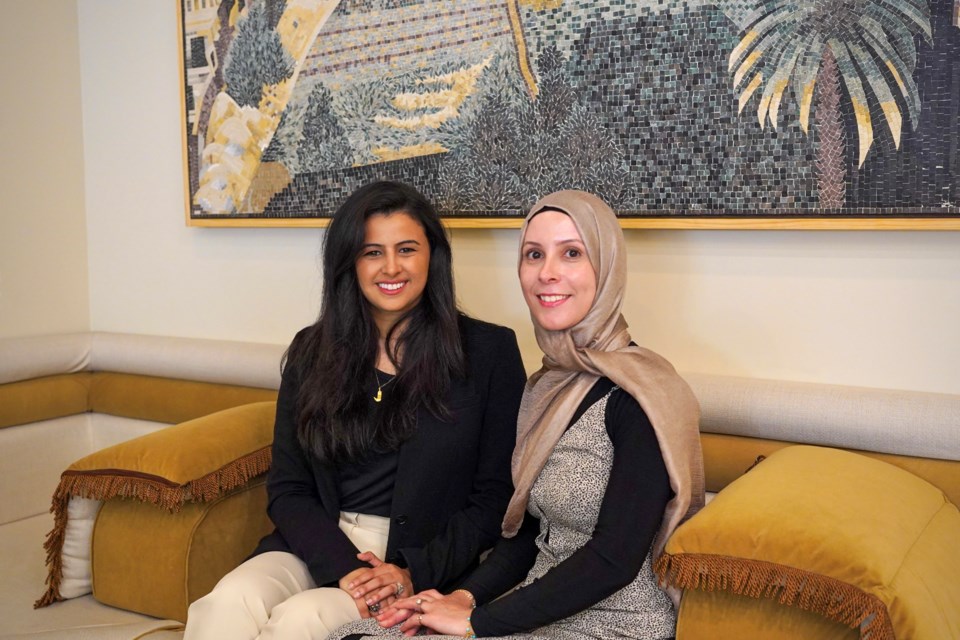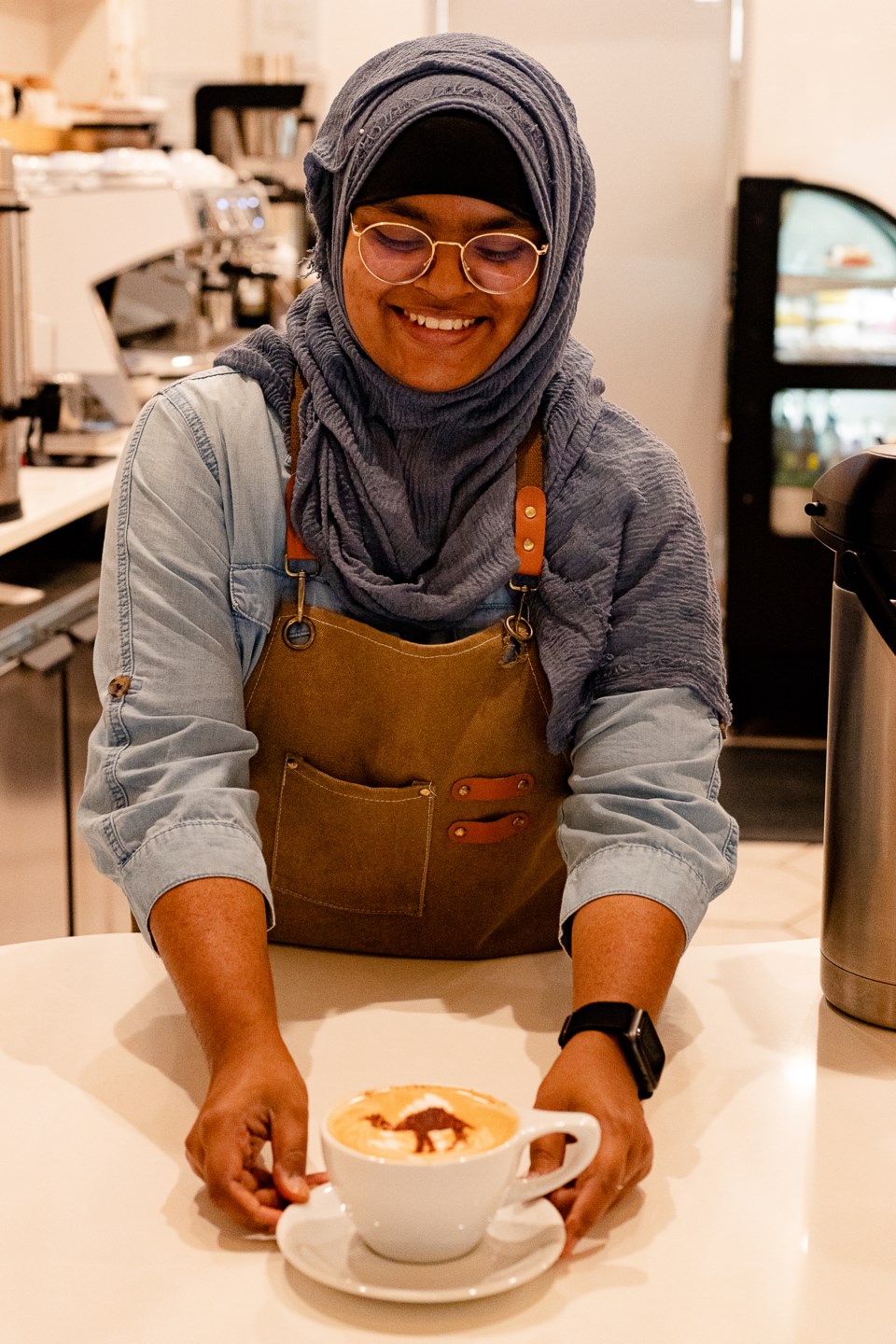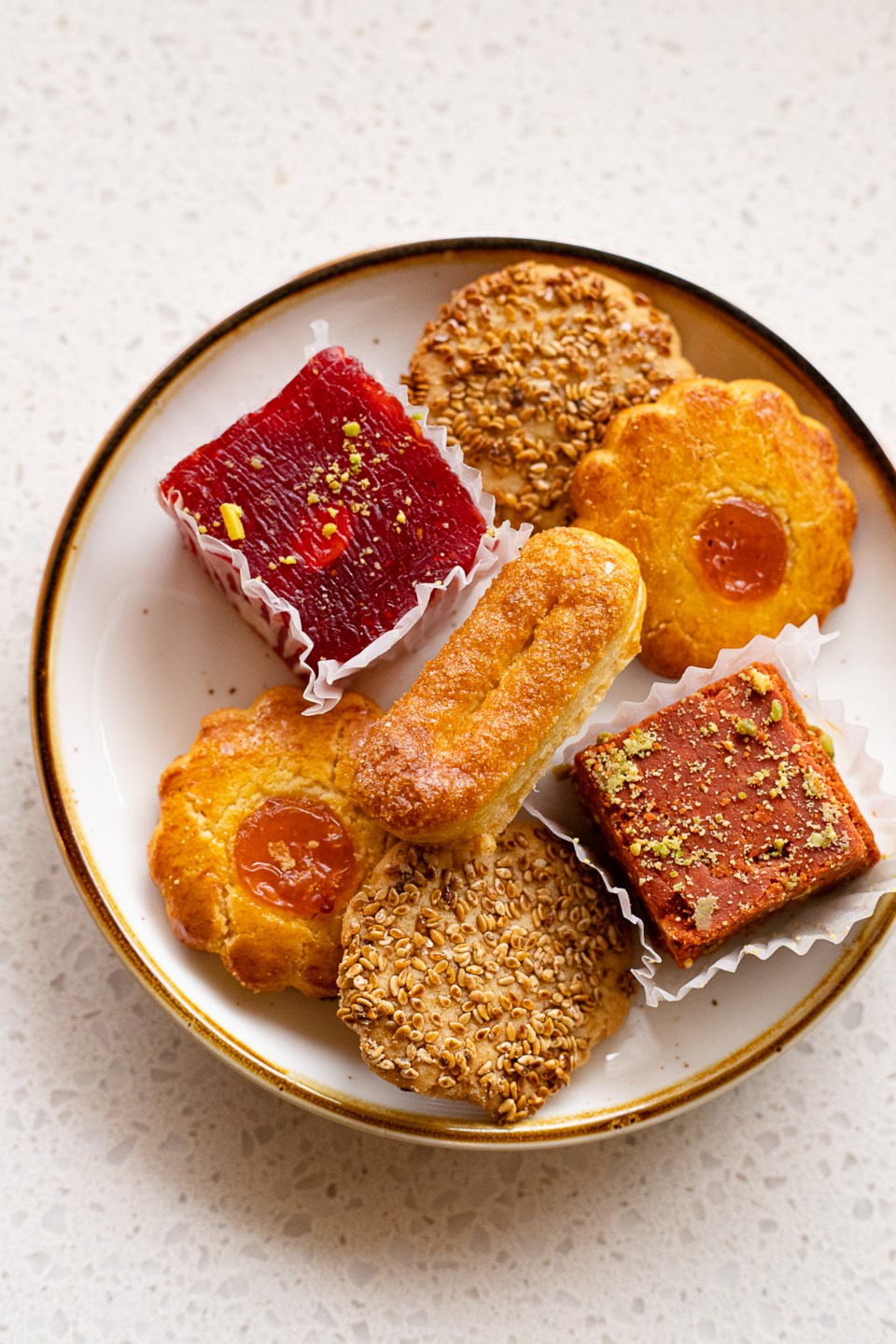Cozied underneath a canopy of live oak trees and pink crepe myrtle blossoms is the unassuming Richardson plaza that houses Arwa Yemeni Coffee — whose namesake pays homage to Queen Arwa al-Sulayhi, the longest-reigning queen in the history of Yemen, known for her compassion, intelligence and devout leadership, which afforded her kingdom an abundance of peace and prosperity.
The scents of freshly roasted coffee beans billow outside into the courtyard patio, while conversational chatter and warming aromatics fill the space indoors. Arwa Yemeni Coffee is buzzy, but chill; it’s not overly bustling — in a good way. It feels inviting while still maintaining its cool-girl aesthetic of neutrals, clean lines and an occasional plant. But there’s so much more to this coffee shop than the cute, made-for-your-Instagram-feed neon sign that hangs in the entryway.
Despite Yemen’s recent commitment to dismantling disenfranchising gender roles and narrowing the gender gap in business and education, the country has very few women entrepreneurs. For more reasons than one, sisters-in-law Nora Soofi and Susan Shihab know that being majority owners of a Yemeni coffee shop is an awesome thing — one they don’t take lightly.
Shihab, a marketing professional and first-generation Yemeni American, and Soofi, an educator and Yemeni immigrant who came to the United States as a young teen (she is the sister of Shihab’s husband), are passionate about sharing Yemen and its culture with North Texas. They know some folks may have uninformed opinions about Yemen or not know anything about Yemen at all. “Sometimes, our customers will tell us they didn’t even know Yemen was a country,” says Shihab. “And that’s OK. We want to share Yemen with everyone. Arwa Yemeni Coffee is an opportunity to highlight the good our country and people have to offer.”
If you close your eyes and imagine a coffee shop, images of sipping cappuccino while relaxing in an Italian piazza might arise. Or perhaps your favorite neighborhood spot to grab a cup to go is what pops up. Whatever your coffee shop experiences have been or your mind conjures, we have Yemen to thank for that. Yemen’s role in coffee culture is vital. The genealogy of the coffee plant has been traced back to the ancient forests of Ethiopia, and the trade and cultivation of the bean began on the Arabian Peninsula. Prior to the 15th century, seeds for planting traveled across the Red Sea and into Yemen through the Port of Mocha (also spelled “Mokha” or “Mukha”). And until the early 17th century, when colonialism changed the growing and exporting landscape (another story for another day), nearly the entire global coffee supply came from Mocha.
After Sufi monks first utilized coffee in sustained ritual prayer, drinking coffee at home became popularized in the Arab world. Then came the rise of the public coffee house or qahveh khaneh, a meeting spot for men to debate, exchange intellectual ideas and socialize. Eventually, the concept of the qahveh khaneh spread to Europe, and coffee houses began popping up everywhere. Today, coffee shops are so commonplace that it’s easy to gloss over when, where and why they came about, as well as their massive impact on our global coffee culture.
For Shihab, Soofi and their spouses, who are co-founding partners, making an excellent cup of coffee comes first. “Serving a really good cup of coffee that is consistent is super important,” says Shihab. “Because none of this matters if the coffee isn’t good.” Together, the four of them spent years researching, developing, planning and perfecting their in-house roasting method and generationally influenced recipes.
“Before we opened, we spent the most amount of time trial testing everything on the menu,” Soofi proudly shares and continues. “Our focus is to revive the Yemeni coffee bean, bring awareness to our culture while helping our people back home. The beans we source help aid the farmers in Yemen.”
Shihab and Soofi are acutely aware that they need people to like their coffee if they are to continue sharing aspects of Yemen. And people do like it — they like it a lot. Word about Arwa Yemeni Coffee has spread very quickly, mainly on Instagram and TikTok, attracting the attention of those from Arab countries who are familiar with Yemeni coffee and those who are entirely unfamiliar but eager to find out more. It’s easy to see why Arwa Yemeni Coffee shines on social media, using its physical space to amplify the natural beauty of its owners’ homeland. “We want you to walk into our shop and feel like you’ve been transported into another world — and that world is Yemen,” says Soofi.
“We chose specific colors and shapes that highlight the unique terrain and architecture found in Yemen,” Shihab continues. She gestures to the unique light fixtures hanging from the interior ceiling. “These were inspired by the madhalla” (the madhalla is a traditional straw hat worn by women working in the fields). Without being too on the nose, its soothing sandy color palette, arch details and honeycomb-tiled floors bring you someplace really special.
In the main interior room, under a stunning 25,000-tile mosaic depicting a Yemeni scene, is a jelsa, a traditional Arabic communal seating area that’s positioned low with cushions to encourage conversation and relaxation. “Our customers love this space,” Shihab says. “And I love when I see people come in that don’t know each other sit here and wind up in conversation. Connection through coffee is the Yemeni way.”
But it’s OK if striking up a conversation with a stranger feels a little too outside your comfort zone. Get cozy in a corner and read a book. Connect to Wi-Fi and get to work on your laptop. Or chill in the courtyard with some friends. It’s not unusual to see people playing chess or hear someone strumming a guitar or reciting poetry. The crowd at Arwa Yemeni Coffee on any given day is impressively diverse in age, gender, race and cultural identity.
And that was exactly what Soofi and Shihab were hoping for when they settled on Richardson, known for its glorious and abundant offerings of global cuisine. According to Soofi, “We chose this spot because we wanted to be in an area with a strong Muslim and Middle Eastern community.”
If it feels like Shihab and Soofi have thought of everything, it’s because they have. There isn’t a part of Arwa Yemeni Coffee that hasn’t been intentionally executed with profound care. And it’s this approach that allows them to do what they set out to do: share Yemeni culture through an educational and authentic experience, give back to the Yemeni people and farmers — and serve great coffee.









